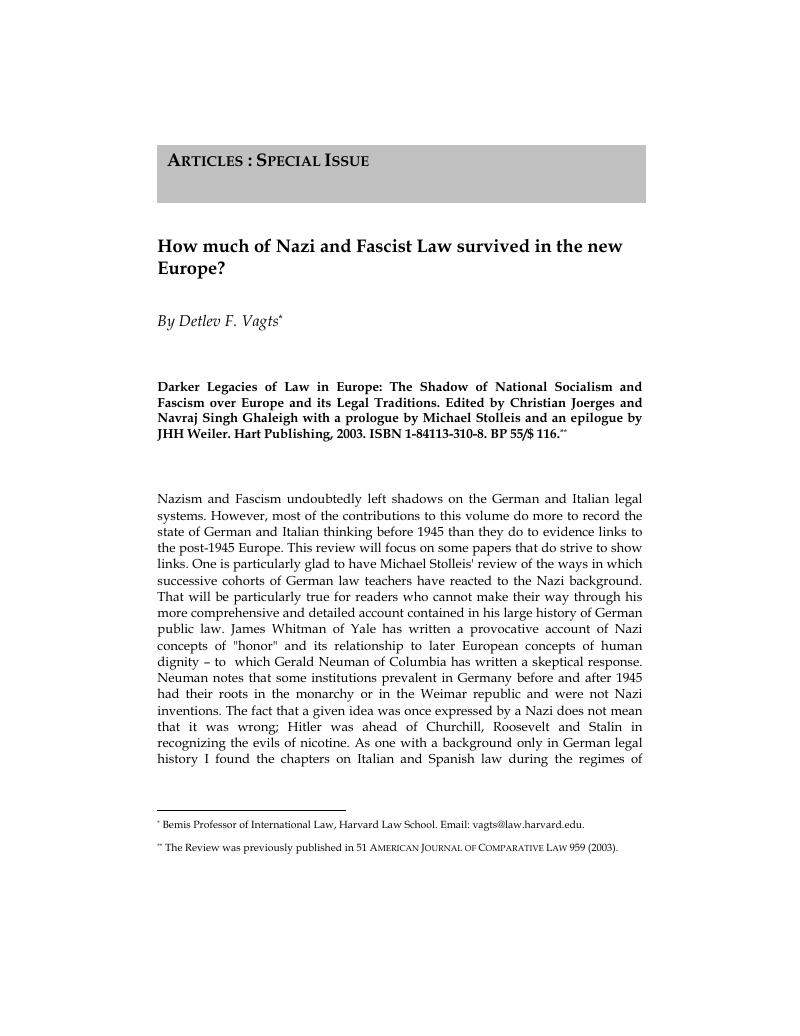No CrossRef data available.
Published online by Cambridge University Press: 06 March 2019

1 John Laughland, The Tainted Source: The Undemocratic Origins of the European Idea 35 (1997).Google Scholar
2 This argument is developed in Niall Ferguson, The Pity of War 171, 460 (1999), who even suggests that if Britain had not entered World War I “continental Europe could therefore have been transformed into something not wholly unlike the European Union we know today” 460.Google Scholar
3 Joerges, Christian, Europe as Großraum? Shifting Legal Conceptualisations of the Integration Project, in Darker Legacies of Law in Europe, 167, 185 (Christian Joerges/Navraj Singh Ghaleigh eds., 2003).Google Scholar
4 Weiler, JHH, Epilogue, in Darker Legacies of Law in Europe, 389, 397 (Christian Joerges/Navraj Singh Ghaleigh eds., 2003).Google Scholar
5 Joerges, , supra note 3, at 183.Google Scholar
6 Weiler, , supra note 4, at 401.Google Scholar
7 McCormick, John P, Carl Schmitt's Europe: Cultural, Imperial and Spatial, Proposals for European Integration, 1923-1955, in Darker Legacies of Law in Europe, 133, 141 (Christian Joerges/Navraj Singh Ghaleigh eds., 2003).Google Scholar
8 For further defense of this position see Detlev F. Vagts, Carl Schmitt in Context: Reflections on a Symposium, 23 Cardozo Law Review, 2157 (2002).Google Scholar